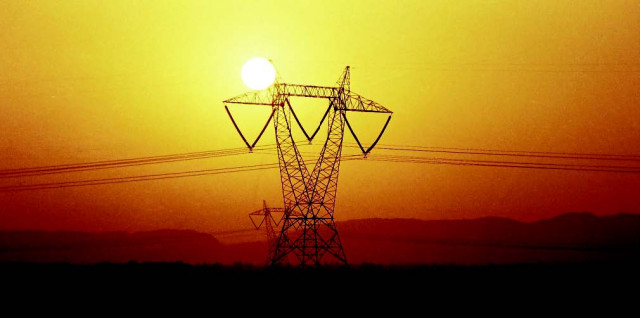Fuel costs: CPPA wants power tariffs to rise by another 21%
NEPRA to conduct public hearings on March 20 to determine if hike is justified.

Fuel costs: CPPA wants power tariffs to rise by another 21%
In four separate petitions filed by the CPPA, a subsidiary of the state-owned National Transmission and Dispatch Company, requested tariff increases based on rising costs of fuel. The company claimed that its fuel costs for the month of October 2011 through January 2012 were far higher than those it was allowed to bill and so it must increase the tariffs in order to recover the costs it has already paid to power generation companies.
Nepra will conduct public hearings into those four petitions on March 20. The regulator had previously declined those petitions due to stay orders issued by courts in which Nepra was facing litigation over its decisions to allow power tariff increases.
For the month of October 2011, CPPA says that it faced an average fuel cost of Rs6.95 per kilowatt-hour of electricity purchased but was collecting only Rs4.71 per unit in tariffs, leaving a difference of Rs2.24 per unit. During November 2011, that number came out to Rs1.30 per unit. For December 2011, the differential was Rs0.99 per unit and in January 2012 that number was Rs1.96 per unit.
As with previous decisions, the government is expected to allow no change in power tariffs for “lifeline consumers” – those that use below 50 units a month. They are expected to continue paying the nominal Rs1.87 per unit.
For the month of March, Nepra has already allowed an average of a 39% increase in the tariffs in order to recover the cost of fuel used by power generation companies in August 2011. A further increase of about Rs1.77 per unit, or about 16.3% is expected in the coming month owing to fuel price differentials during the month of September 2011. Nepra is behind on notifying power tariff increases because of stay orders issued by courts, which were only recently lifted.
The reason for the sharp increases in fuel are Pakistan’s rapid shift away from using primarily hydroelectric power and gas-fired thermal power to the more expensive oil fired thermal power. This shift is both seasonal as well as more long-term.
For instance, during the month of October 2011, hydroelectric power generation units contributed about 31.3% of the country’s electricity and gas-fired plants about 26.1%. By January 2012, hydroelectricity was contributing only 15.9% of the grid’s electricity and oil-fired power plants were contributing about 42.5%.
The change in the fuel mix matters a lot. Hydroelectricity costs about Rs2.5 per unit or less. Gas-fired power plants cost up to Rs5 per unit, but oil-fired power plants cost as much as Rs18 per kilowatthour of electricity produced.
Given the fact that the average consumer of electricity in Pakistan pays less than Rs10 per unit, the fuel mix shift away from dams and gas to oil sharply raises costs and forces the government to pay subsidies to keep prices stable.
A water and power ministry official said that the eight state-owned power distribution companies receive reference prices based on the Islamabad Electric Supply Company’s rates – some of the lowest in the country – and the rest of the suppliers are given subsidies in order to make up for the difference in their actual costs and what they are allowed to bill.
The subsidies are expected to cost the government Rs350 billion this year, well above the budgeted target of Rs166 billion.



















COMMENTS
Comments are moderated and generally will be posted if they are on-topic and not abusive.
For more information, please see our Comments FAQ